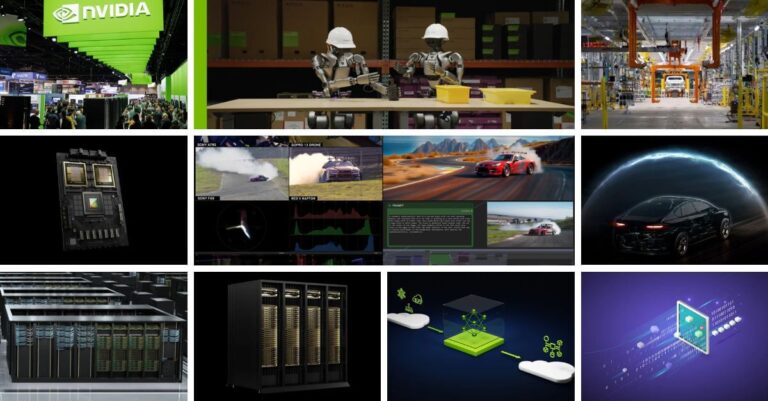VOXI by Vodafone Steps into the Future with a Generative AI Chatbot
VOXI by Vodafone marks a significant milestone in the UK telecom industry by launching an innovative large language model (LLM) chatbot, setting a new standard in digital customer engagement. This GenAI Chatbot, developed in partnership with Accenture, leverages the capabilities of the ChatGPT framework to offer an unparalleled user experience. By simulating human-like interactions, the chatbot can easily handle complex customer inquiries.
Enhancing Customer Support with Generative AI
As part of a strategic initiative to integrate generative AI technology across its operations, VOXI and Vodafone are enhancing their digital service offerings. This initiative includes the adoption of an AI safety framework, collaboratively developed with industry specialists. This framework is designed to ensure the ethical use of AI, emphasizing customer protection and responsible technology deployment.
Initially, the chatbot will be available to a select group of VOXI customers, allowing for thorough testing and optimization before its broader application. This phased approach underscores the commitment to delivering a flawless customer experience.
The Impact of Generative AI on the Business Landscape
The move by VOXI reflects a broader industry trend toward embracing generative AI. According to a report by Accenture, a significant majority of UK executives recognize the transformative potential of generative AI for their businesses. Furthermore, an increasing number of organizations are planning to ramp up their investments in data and AI technologies in the upcoming year.
VOXI’s Commitment to Innovation and Customer Satisfaction
Scott Currie, the Head of VOXI by Vodafone, expressed enthusiasm about being the first UK telecom to offer such advanced technology to customers. This initiative is a testament to VOXI’s dedication to innovation and its goal to provide the best possible customer service.
Mark Farbrace, Accenture UK’s Generative AI Lead, highlighted how generative AI is reshaping VOXI’s operations, starting with customer service. This technology promises to drive substantial improvements across various aspects of the business.
Strategic Partnerships and Future Prospects
Earlier in the year, Vodafone Group announced a significant strategic partnership with Microsoft, aimed at leveraging generative AI to transform customer experiences further. This collaboration will extend digital platform services to millions of consumers and businesses across Europe and Africa. Vodafone’s commitment includes a substantial investment in AI and cloud services, reflecting the company’s long-term vision for innovation and customer engagement.
A New Era of Customer Interaction
VOXI’s introduction of its LLM chatbot, developed with Accenture, marks the beginning of a new era in customer service within the UK telecom sector. By harnessing the power of generative AI, VOXI is improving customer support and paving the way for further technological advancements across its operations.
As the industry evolves, the integration of artificial intelligence (AI) and machine learning (ML) technologies is becoming increasingly central to delivering personalized, efficient, and engaging customer experiences.
Broader implications of AI in telecom
This section explores the broader implications of AI in telecom, focusing on innovation, scalability, and the future of customer interactions.
Innovative Customer Service Solutions
AI-driven solutions like VOXI’s chatbot are redefining the standards of customer service in the telecom sector. Beyond handling inquiries, these technologies are capable of predicting customer needs, offering personalized recommendations, and automating routine processes. This not only enhances efficiency but also significantly improves customer satisfaction by providing timely and relevant support.
Scalability and Operational Efficiency
The deployment of AI technologies allows telecom companies to scale their operations effectively. By automating tasks that traditionally require human intervention, companies can redirect their resources towards more strategic areas, such as product development and market expansion. Additionally, AI can optimize network performance and maintenance, ensuring high-quality service delivery across expanding customer bases.
Future Trends: AI and the Personalization of Telecom Services
Looking ahead, the role of AI in telecom is set to expand further, with personalization at the forefront of this evolution. By leveraging data analytics and AI, telecom companies can tailor their services to meet each customer’s unique preferences and requirements. This could range from customized data plans and services to targeted marketing campaigns, enhancing customer loyalty and engagement.
VOXI’s Role in Shaping the Future of Telecom
VOXI, by Vodafone’s approach to incorporating AI into its services, positions it as a leader in the telecom industry’s digital transformation. By continuously exploring and implementing AI and ML technologies, VOXI sets a benchmark for customer service excellence and demonstrates a commitment to innovation and forward-thinking. This proactive stance is crucial for staying competitive in a rapidly evolving technological landscape.
The collaboration between VOXI, Vodafone, and Accenture exemplifies the importance of strategic partnerships in driving technological innovation. These collaborations bring together diverse expertise and resources, accelerating the development and deployment of advanced solutions. As telecom companies navigate the complexities of digital transformation, such partnerships will be vital for harnessing the full potential of AI and other emerging technologies.
Conclusion: Navigating the AI-Driven Future
VOXI’s introduction of its AI chatbot, in collaboration with Accenture, is more than an enhancement to customer service—it’s a glimpse into the future of the telecom industry. As AI technologies continue to evolve, they offer tremendous potential for revolutionizing how telecom companies operate and engage with their customers. Embracing these technologies improves current service offerings and opens up new avenues for innovation and growth. As the industry moves forward, VOXI’s early adoption of AI sets a precedent for others to follow, underscoring the critical role of technology in shaping the future of telecommunications.


















